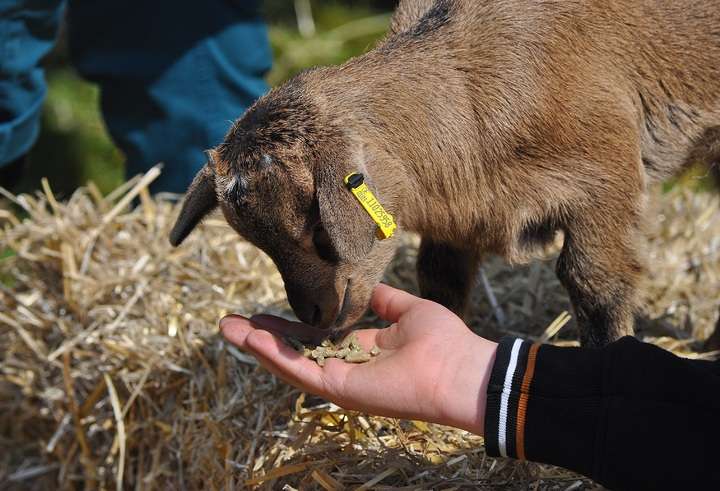Have you ever considered what makes animal feed nutritious? Animal feeds ingredients are integral to animal nutrition and agriculture, providing essential nutrients and energy that support growth, development, and maintaining their health. In this post, we’ll look in-depth at animal feed ingredients such as corn and soybeans to highlight their nutritional value and sustainability.

Common Animal Feed Ingredients
Animal feeds ingredients can be divided into three categories: grains, protein sources, and other feed components.
Grains such as corn, wheat, and barley are essential ingredients in animal feed. Their high carbohydrate content gives animals the energy they require for maintaining bodily functions and producing meat, milk, and eggs – corn is often chosen as it has such high energy potential.
Protein sources like soybean meal, fish meal, and poultry by-product meal are vital ingredients in animal feed. They supply amino acids essential to muscle development and repair in animals; soybean meal is top-rated as it’s highly digestible and provides all essential amino acids for animal nutrition.
Feed ingredients such as fats, oils, minerals, and vitamins are vital to animal nutrition. Fats and oils contain high energy density while providing essential fatty acids, which play an integral role in maintaining animal health. Calcium and phosphorus minerals help develop strong bones, while vitamins help strengthen their immune systems.
Nutritional Value of Animal Feed Ingredients
The nutritional value of animal feed ingredients is paramount to animal health and productivity. Corn is high-energy feed material that supplies energy-hungry animals with the needed carbohydrates for energy needs. Soybean meal, in particular, provides superior amino acids necessary for muscle development.
Furthermore, animal feed\ ingredients’ nutritional value can enormously affect the quality and safety of animal products such as meat, milk, and eggs. Supplementing animal products with more nutritional components containing omega-3 fatty acids or antioxidants may increase their nutritional value, making them healthier options for consumers.
Sourcing Sustainable Feed Ingredients
Sustainable feed ingredient sourcing has become more vital in animal agriculture as demand for animal products increases, making it essential to find ways to produce animal feed ingredients in an eco-friendly and responsible manner.
One strategy is purchasing animal feeds ingredients from local producers, thus reducing emissions and supporting local economies. Another approach would be utilizing by-products from food production, such as canola meal or corn gluten meal, to minimize food waste while lessening environmental impacts.
Feed Ingredient Processing and Quality Assurance Control
Feed ingredient processing and quality control are vitally important to ensuring animal feed ingredients’ safety and nutritional value. Processing methods like grinding, mixing, and pelleting can increase digestibility while increasing nutritional value.
Quality control measures such as testing for contaminants and tracking nutrient levels are necessary to ensure animal feed ingredients meet all the required standards for animal health and safety.
Conclusion
Animal feed ingredients play a crucial role in animal nutrition and agriculture, providing essential vitamins, minerals, and energy needed for animals to develop healthily and maintain optimal wellness. Sustainable feed ingredient sourcing and quality control practices must be in place to guarantee animal safety and nutritional value in feed ingredients consumed by consumers. As consumers, it is our duty to learn about animal nutrition issues that impact sustainability so we can make informed choices about which animal products we consume.

